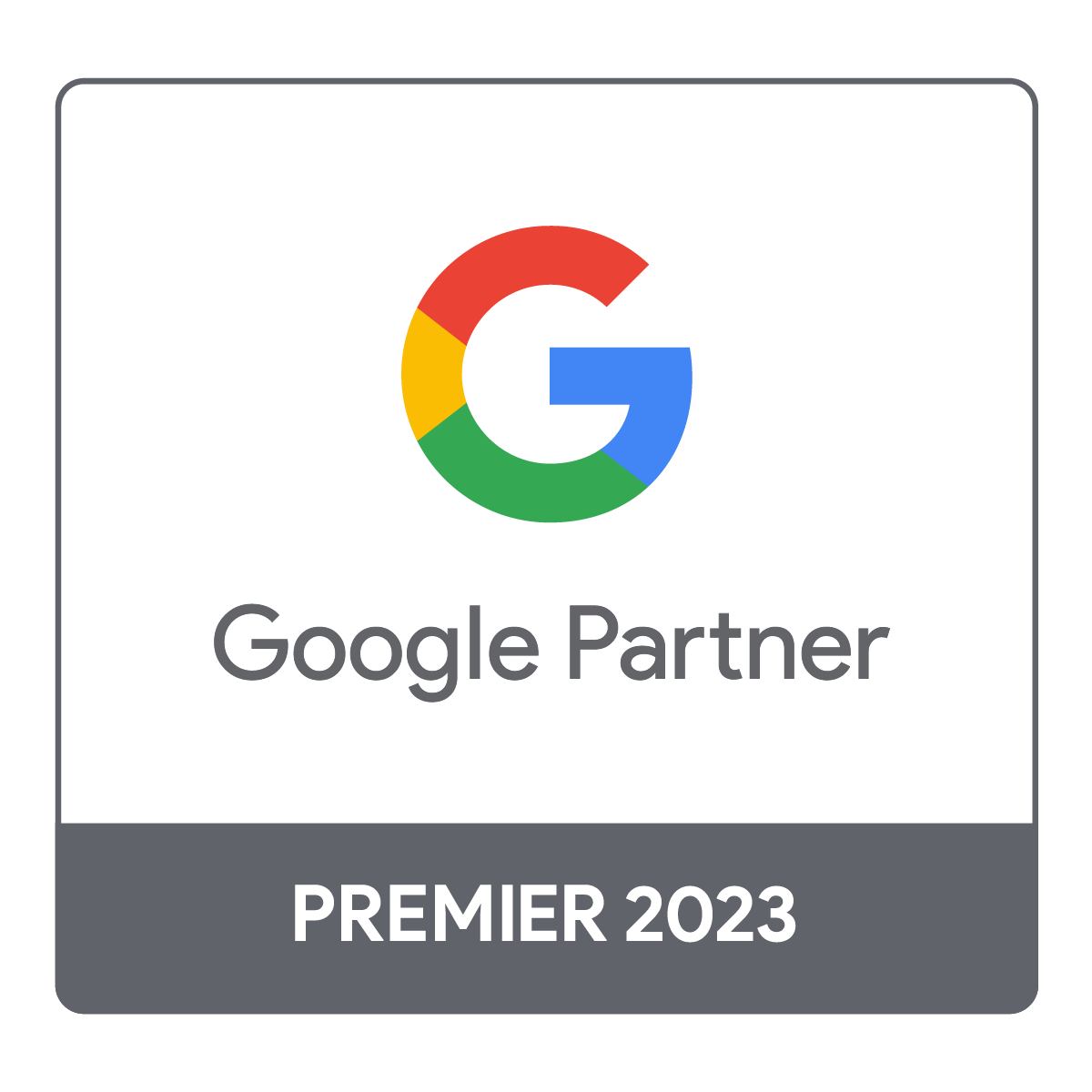2. Set Up Goals
The primary goals of a law firm are retaining clients and enhancing your firm’s reputation as a trusted legal advisor. Achieving these broad goals requires setting specific, smaller objectives that guide your attorney internet marketing efforts toward success.
Examine the path clients take to engage your services. Consider their search habits, how they discover your firm, the ratio of website traffic to conversions, and whether increased social media presence and website enhancements could capture more clients.
Digital marketing demands clear, actionable goals, as the endgame is acquiring clients, not just online engagement. You must align every marketing move with your firm’s goals, setting precise targets for client acquisition and time frames to avoid the pitfalls of ambiguity and ensure productive outcomes.
3. Calculate Your Marketing Expenses
Top-tier law firms treat marketing as a strategic investment, with client acquisition serving as the measure of return on investment (ROI). To translate this approach into action, you must calculate the cost of each marketing strategy:
- Developing a website requires web development, designers and maybe SEO costs.
- Advertising campaigns requires you to bid for different keywords in various prices. For instance, the highest cost-per-click for keyword “lawyer hong kong” was HK$33.53 page bid in November 2023.
- Creating educational content requires content writer expenses.
Each element works towards the ultimate goal of increasing your client base and maximizing your marketing ROI.
4. Select The Marketing Channels Based On Your Goals
Choosing appropriate marketing channels is crucial for the success of law firm marketing. Different channels have unique qualities that match various goals. Knowing your target audience is essential, guiding you to the channels that will most effectively connect with potential clients.
Options such as social media and content marketing provide broad exposure and interactive possibilities. Email marketing is particularly effective for cultivating client relationships with personalized communication. Podcasts and videos can position your firm as a thought leader by leveraging compelling narratives.
Evaluate the synergy between digital and traditional marketing tactics, determining their effectiveness in achieving your objectives. Continuously track the performance of each channel against your goals to fine-tune your marketing strategy.
| Goals |
Channels |
| Thought Leadership |
Podcasts, Videos, Content Marketing |
| Brand Marketing |
Seminars, KOL Marketing, Social Media |
| Audience Engagement |
Podcasts, Videos, Social Media |
| Lead Generation |
Content Marketing, CRO, PPC |
| Client Retargeting |
PPC |
| Building E-E-A-T |
SEO, Link-Building, Awards |
| Online Visibility |
Social Media, Videos, Infographics |
| Client Retention |
Newsletters, Email Marketing, |
5. Create A Website
All clients expect your law firm to have a website. If your practice doesn’t have a website to prove it’s credentials, describe it’s services and provide a business presence, nobody would trust your law firm is a credible one. An effective law firm website accomplishes the following for potential clients:
- Highlights the expertise of your legal services
- Lists contact information clearly
- Shares narratives of successful case outcomes
- Reflects the core values of your law firm
- Answers frequently asked questions to establish trust and improve search engine rankings
Your law firm’s website should be designed with user-friendliness in mind, ensuring ease of navigation on desktops, tablets, or mobile devices. It must be search-engine optimized for better visibility, and every page should include a distinct call to action, encouraging potential clients to take the next step in engaging your legal services.
6. Kickstart With SEO
SEO is valuable as it attracts free organic traffic to your website and enhances your visibility on search engine results pages (SERPs).
In a competitive field like law, where a single click can cost HKD $50-$100, accumulating to over HKD $1000+ for just 10 clicks, an effective SEO approach could yield 10,000 clicks at no additional cost per click.
Why is SEO Important for Lawyers?
SEO matters greatly as it enables potential clients to discover you. Attorneys should keep in mind that SEO isn’t only about what they do on their website (on-page SEO), but also what they do on other websites and social media (off-site SEO).
Google’s sophisticated algorithm dictates the rankings on its search engine pages, and with ever-evolving ranking criteria, it’s crucial for your website to stay SEO-optimized to adapt to these shifts.
SEO is key to capturing leads actively seeking your services and provides several critical advantages:
- Elevated rankings often lead to increased trust.
- A strong market presence that drives specific traffic and boosts conversion rates.
- For community-based law practices, SEO helps generate reviews through local search inquiries.
- SEO ensures visibility to potential clients on various devices, including smartphones and tablets.
7. Local SEO
The Localized keyword “Law Firm Hong Kong” results in 720 average monthly search volume. This shows how important local SEO is for law firms’s search and visibility.
Local SEO is essential for law firms aiming to improve their placement in local search rankings and draw in clients from their immediate vicinity. This is especially beneficial for smaller law firms facing competition from larger firms.
Moreover, law firms with favorable online reviews tend to eclipse those lacking such feedback. Local SEO is adept at matching your services with clients in your area by taking into account both the client’s location and the targeted keywords associated with your practice.
8. Optimize With PPC
If we consider law firm lead generation as a “waterfall,” PPC and paid ad campaigns represent the most vigorous flow. PPC services can accelerate lead generation for lawyers much faster than organic content that has worked its way to the top of search engine rankings. In a blink, your website could be exposed to thousands of potential clients.
PPC functions by advertisers bidding on keywords and paying per click to steer traffic towards their websites. The main disadvantage of PPC advertising is its dependency on funding – the moment you stop, the leads stop too. Paid ads can be substantially costly, depending on the nature of cases you are targeting.
Why is PPC Important for Lawyers?
PPC ads play a crucial role in swiftly connecting with new clients. Evergreen content that is both relevant and informative, like a practice area page, requires time to climb to the top of Google search results. For new attorneys, it can take years for their content to reach the top of search engine results pages.
Lawyer PPC Keywords Examples
Here are a few lawyer PPC keywords example to get you started on your lawyer PPC campaign.
| Keyword |
Volume |
Cost Per Click (HKD) |
|
law firm hong kong
|
720 |
$30 |
| criminal law firm hong hong |
140 |
$25 |
| real estate lawyer |
10 |
$80 |
| divorce law firm |
10 |
$10 |
| legal services |
90 |
$23 |
| immigration attorney |
170 |
$24 |
| marriage lawyer |
10 |
$3.50 |
| employment lawyer |
30 |
$25 |
|
intellectual property lawyer
|
110 |
$60 |
There is a saying in 2023, and will even be more emphasized in 2024. “Content Is King”. Every content piece you share can drive new visitors and leads to your law firm. Simply put, content marketing helps with search engine optimization. Do competitor research for your content. If competitor law firms publish 3,000-word articles on a topic, Google may rank your shorter content lower in search results. Headers, readability, bullet points, structure, reference links also play a part in content strategy. A guide of how to become a legal blogger will be listed below.
10. Wrap Up With CRO
Conversion Rate Optimization is all about effectively utilizing the leads acquired through your various strategies. CRO entails gathering contact information from potential clients and establishing a follow-up process to further engage them into the sales funnel. Without CRO, your lead generation techniques might not significantly influence your business.


 Awareness
Awareness
 Consideration
Consideration
 Conversion
PPC & Advertising - Digital advertisements can allow you to perform retargeting, which means showing your ads to people who have already seen your company through SEO or social media. This means your ads will only target people who have shown interest in legal services, and have a higher chance of conversions.
Conversion
PPC & Advertising - Digital advertisements can allow you to perform retargeting, which means showing your ads to people who have already seen your company through SEO or social media. This means your ads will only target people who have shown interest in legal services, and have a higher chance of conversions.  Loyalty
Loyalty













